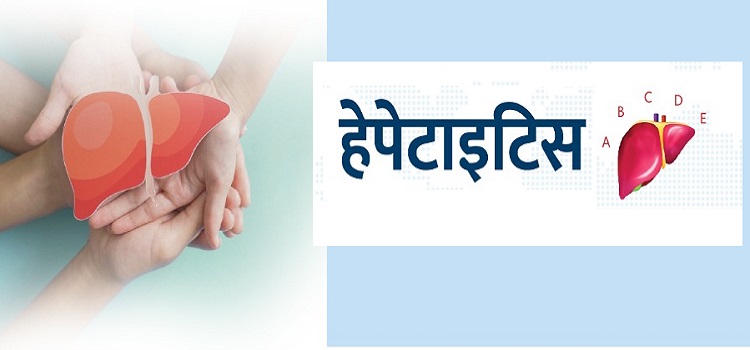Why is it important to get a hepatitis test?
- 2022-07-28
HEPATITIS
Hepatitis means inflammation of the liver. The
most common causes of hepatitis are the hepatitis viruses, but it can also
occur due to other infections, alcohol consumption, drug abuse, and some forms
of autoimmune diseases.
There are about 325 million peoples in the world,
who are living with viral hepatitis, yet up to 290 million of these are unaware
of their situation, which can lead to liver complications later.
When to suspect Hepatitis?
In many patients there are no symptoms and
hepatitis can go undiagnosed. In some people, it can cause the following;
· Yellowing of skin and eyes
· Fever
· Fatigue
· Loss of appetite
· Nausea and vomiting
· Abdominal pain
· Headaches
· General malaise
· Diarrhea
Viral Hepatitis: A Matter of Concern
Although hepatitis can occur due to a range of
factors, viral hepatitis (liver inflammation caused by a viral infection) is a
major health burden. Viral hepatitis can be of five types depending upon which
type of virus has caused the disease. Of these, Hepatitis A, Hepatitis B, and
Hepatitis C are the common types of viral hepatitis.
HEPATITIS A
Hepatitis A can spread through food or water.
Food can be tainted when it is touched by a person with hepatitis and has not
washed his hands thoroughly after using the bathroom. Raw and undercooked foods
are common culprits in hepatitis A outbreaks.
HEPATITIS B
Hepatitis B can spread through contact with
the blood or body fluids of an infected person. It is also possible to get
Hepatitis B by unprotected sex, sharing infected needles, razors or
toothbrushes. Hepatitis B does not spread by hugging, sharing food, or
coughing.
HEPATITIS C
Hepatitis C is spread through contact with
blood from an infected person. Sharing needles, getting a tattoo or body
piercing with an infected needle can lead to an exposer. Multiple sex partners
or HIV too are responsible for the risk and spread of Hepatitis C.
How to Prevent it?
You can easily prevent hepatitis by following
these precautions;
- Wash
hands thoroughly after using the washroom and before having meal
- Always
drink clean water
- During
blood transfusions, ensure that blood or any other blood component is being
screened for Hepatitis B and C beforehand
- Do
not share needles, syringes, razor blades, and other personal items
- Make
sure that you are engaging in safe sex
- Get
a hepatitis screening profile test
Hepatitis in older people: should you worry?
Hepatitis C is known to be a common cause of acute hepatitis in the elderly; after 20-30 years of being affected about half of them develop chronic hepatitis, and of those a significant number develop cirrhosis (20-60%). Hence, it is wise to watch out for the symptoms and go for regular liver screening tests. Additionally, hepatitis can be diagnosed in the laboratory by the tests; Complete blood count, Liver function test, Hepatitis B & C antigen
Tests
Related to Viral Hepatitis
A Hepatitis Test in Kathmandu is generally a
blood test that can help in diagnosing which kind of Hepatitis you might be
suffering from so that correct treatment can be administered. It is essential
to get tested as this is a serious illness that can have life-threatening
consequences.
Hepatitis A (HAV) antibody test
This test detects whether you have produced
antibodies known as immunoglobulin M and immunoglobulin G against the hepatitis
A virus (HAV).
Hepatitis B surface antigen (HBsAg)
This is a test to find out if you have a
current infection. HBsAg is the earliest sign of the virus and disappears from
your blood as the infection clears. A positive result indicates infection. If
the antigen is not found (negative result), this shows that either you have
never been exposed to hepatitis B or that you have recovered from infection and
cleared the virus. The term ‘surface’ refers to the outer surface of the virus
itself.
Antibodies to hepatitis B surface antigen
This is to detect the protective antibody in
your blood that reveals whether you have had previous exposure to hepatitis B.
The presence of the antibody anti-HBs (positive result) indicates that you are immune
to hepatitis B due to vaccination or recovery from past infection, and are no
longer infectious to others.
Hepatitis B envelope-antigen (HBeAg)
This test is used to confirm the presence of
HBeAg, which only appears in the blood when the virus is present and is a sign
that you are actively making the virus (and therefore able to pass it on to
others).
What happens after this antigen is found will
depend on how quickly your immune system produces antibodies called anti-HBe.
Anti-hepatitis B core antigen (anti-HBc)
The anti-hepatitis B core antigen is an
antibody to the ‘core’ part of the hepatitis B virus, the hepatitis B core
antigen. However, this antibody does not provide the protection usually
associated with antibodies and is found in people with acute infection, in
chronic carriers and in people who have cleared the infection. Doctors will use
the results of other tests to interpret the presence of anti-HBc in your blood.
HBV RQPCR Assay (Viral Load)
This important test does not look for antigens
or antibodies but monitors the amount of virus in your blood, known as your
‘viral load’. The higher your viral load, the more active your infection will be.
Active virus replication, where the virus is making lots of copies of itself,
is known as positive HBV DNA. Doctors will be looking for a very low amount or
no trace of the virus as a marker of your response to antiviral medication.
HCV antibody test (anti-HCV)
An anti-HCV test looks for any trace of
antibodies in your blood. If they are found, this shows that you have been
exposed to the hepatitis C virus. This test is unable to reveal whether you
have active viral infection.
HCV RQPCR Assay (Viral Load)
This test measures the number of viral RNA
particles in your blood. Doctors will usually perform these tests over the
course of your treatment. Measuring your viral load before and after treatment
will show how effectively (or not) the treatment is working.
Tests Related to Noninfectious
Hepatitis
Antinuclear Antibody (ANA): Antibodies present
in several autoimmune disorders
Smooth Muscle Antibody (SMA): Antibodies
present in autoimmune hepatitis
Anti-LKM-1 Antibody: Antibodies present in
autoimmune hepatitis
Antimitochondrial Antibody (AMA): Antibodies present in primary biliary cholangitis, a type of liver disease
Medically Reviewed by
- Ramendra Kumar Raman, PhD, Clinical Research
Reference
https://www.who.int/publications/i/item/9789240053779
(Global health sector strategies on, respectively, HIV, viral hepatitis, and
sexually transmitted infections for the period 2022-2030)



























Leave Comment